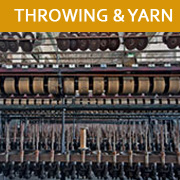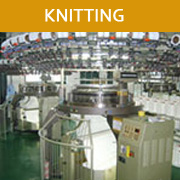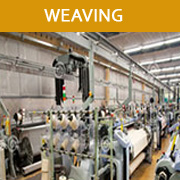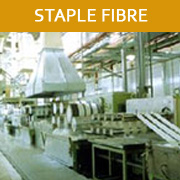Select Your Category
OEM Lubricants --- HONDA --- HERO --- TVS MOTORS --- L&T KOMATSU --- CUMMINS --- TATA MOTORS Aerosols --- Antiseize Sprays --- Mould Release Sprays --- Anti Corrosion Sprays --- Electrical Contact Cleaners --- Never Rust Sprays --- Chain Lube Sprays --- Graphite Sprays --- Silicone Sprays Food Grade Lubricants --- Food Grade Oils --- Food Grade Greases Hydraulic Oils --- Hydraulic Turbine Oils --- Energy Efficient Hydraulic Oils --- fire-resistant Hydraulic Fluids --- Hydraulic Transmission Fluids --- Water Glycol Based Hydraulic Oils --- Zinc Free Hydraulic Oils --- Ester Based Hydraulic Oils --- Heavy Duty Hydraulic Oils --- Anti-wear Hydraulic Oils --- Regular Hydraulic Oils Bearing and Circulating Oils --- Chain Oils --- Filmbear Oils --- Steel Mill Oils --- Axle Oils --- Sugar Mill Oils --- Steam Cylinder Oils Compressor Oils --- Refrigeration Oils --- Naphthenic Based Compressor Oil --- Ammonia Compressor Oils --- Turbo Compressor Oils --- Air Compressor Oils --- Screw Compressor Oils --- Reciprocating Compressor Oils Gear Cardium Compounds Heat Transfer Oils --- Thermic Fluids Heat Treatment Oils --- Quenching Oils Metal Working Fluids --- EDM Fluids --- Synthetic Cutting Oils --- Honing Oil --- Grinding Oils --- Hydraulic Cutting Oil --- Straight Cutting Oils --- Metal Forming Oil --- Pneumatic Tool Oil --- Water Based Soluble Cutting Oil --- Semi-synthetic Cutting Oils --- Soluble Cutting Oils Rust Preventive Oils --- Solvent Based Rust Preventive Oils --- Oil Based Rust Preventive Oils Turbine Oils --- Gas Turbine Oils --- Extreme Pressure Turbine Oils --- Regular Turbine Oils Machinery & Toolway Oils --- Coning and Knitting Oil --- Toolway Oils --- Machine Oil --- Spindle Oils Transformer Oils --- Silicone Based Transformer Oils --- Ester Based Transformer Oils --- Mineral Based Transformer Oils Pesticidal Spray Oils --- Orchard Spray Oils --- Rubber Spray Oils Mould Release Oils Process Oils --- Paraffin Oils --- Base Oils --- Rubber Process Oils Pneumatic Oils Marine Oils --- Marine Fuel Oils --- Marine Compressor Lubricants --- Marine Hydraulic Fluids --- Marine Gear Lubricants --- Marine Engine Oils Engine Oils --- Gas Engine Oils --- Petrol Engine Oils --- Tractor Oils --- Boat Engine Oils --- Diesel Engine Oils --- 4 Stroke Engine Oils --- 2 Stroke Engine Oil --- Synthetic Engine Oil Rail Road Oils --- Locomotive Engine Oils --- Diesel Rail Engine Oil Off Highway Lubricants --- Air Tool & Rock Drill Oils --- Off Highway Tranmission Fluids --- Off Highway Gear Lubricants --- Off Highway Hydraulic Fluids --- Heavy Duty Motor Oils Agricultural Lubricants --- Tractor Hydraulic Oils --- Pump Set Oils --- Tractor Gear & Transmission Oils --- Tractor Engine Oils Synthetic Lubricants --- Synthetic Engine Oils --- Synthetic Chain Lubricants --- Synthetic Compressor Oils --- Synthetic Hydraulic Oils --- Synthetic Gear Oils Transmission Oils --- Gear Transmission Oils --- Hydraulic Transmission Oil --- Power Steering Oil --- Automatic Transmission Fluids Speciality Lubricants --- Petroleums Jellies --- Solvents and Detergents --- Shuttering Oil --- Vacuum Oils --- Flushing Oils --- Coolants --- Break Fluids --- Shock Absorber Fluids --- Hot Forging Lubricant Oils Greases --- Degreaser --- Polyurea Grease --- Aluminium Complex Grease --- Extreme Pressure Aluminium Grease --- Slip Seal Greases --- Girth Gear Greases --- MOS2 based Grease --- Automotive Greases --- Water Resistant Greases --- Calcium Sulphonate Grease --- Lithium - Complex Greases --- Moly Based Greases --- High Temperature Grease --- Graphite Greases --- Extreme Pressure Calcium Grease --- Extreme Pressure Lithium Greases --- General Purpose Greases Gear Oils --- Energy Efficient Gear Oils --- Automotive Gear Oils --- Synthetic Gear Oils --- Heavy Duty Gear Oils --- Regular Gear Oils --- Extreme Pressure Gear Oils Aviation Oils & Greases --- Aviation Greases --- Aviation Hydraulic Oils --- Aviation Engine Oils --- Aviation Turbine Oils --- Aviation Heat Transfer Fluids --- Aviation Gear Lubricants
Select Your Brand
CREST AXCL ROWE PG Super EXOL EMKARATE ACDELCO WURTH OILCOM ETNA GS CALTEX CHALLENGER DYNAMIC PERFORMA BEET-OIL RULEXX PLUS MONEX MAHATHOL ISEL ROYAL PURPLE UNIVERSAL RACE LUBRICANTS VICKERS OILS OMEGA COUGAR ROCK OIL MILLERS LUBCON PETROMIN LASCO PENRITE VAROL OPUS JET-LUBE POWEROIL POLYTRON Gannon LUBTECH EXOL LUBRICANTS PROFI-LUBE SASOL 77 LUBRICANTS CHAKROL GREENOL PERMIAN ADILOF PLO BLAZOL TARGET ATLANTIC NEO SYNTHETIC MANNOL TESLA 100 OIL LIQUI MOLY AUTO KING LOTUS MAXOLINE KYROS PETRELPLUS NBC BACCARA MAG ALDA BIZOL BRADPENN HIPRO EVERLUBE ARDECA TYGRIS LIFER LUBRITA ONWO ELECTROL ZOOMOL DOLPHIN GILCO JETEX MICO EURO CURE PENTAGON BRUGAROLAS MOLYBOND Q8 SAGAR PERTAMINA CIIFROL LUBRILOG ADDINOL LE STATOIL AWARD MOLYTECH TS PENNINE LUBSOIL ELBA GB SLIPKOTE PETRON MORRIS SPECTRO JAX HUSKEY MOLYGRAPH MOSIL REWITEC BECHEM VISCOL LONE STAR CAMCO ULTRA PM ZIC SIGMA UNIGLIDE SINOPEC BELRAY ECO JMJ VEHOLEN TRITECH GRESOL LUKOIL BLASER OKS ENOL SOLAR MOVOL NORTH SEA PALCO NYE XENOL LUBRIPLATE LUBECHEM FUXION VISCO MATRIX GAZPROMNEFT NATIONAL LUBE EIFFEL AGRINOL SASH TRUFLOW OIL CEPSA NORTHSTAR CANADIAN OILFINO MARK KENTZ DANA ANGLOMOIL Super Magic Super Elite PetroS PANOLIN ERGON 7R PRISTA BALMEROL VELVEX PENSOL MRS ENEOS TEXACO PETROLUBE SUMMIT AMALIE CLARION EMERALDLUBE RED LINE VEEDOL HP CROSS CAM2 JOHN DEERE ENI CENEX PENRAY TOWER PRIMROSE BIOBLEND TECH SELECT MARATHON ROYAL PEAK RENEGADE ANDEROL SUPER S SUNOCO SCHAEFFER SINCLAIR CONOCO PHILLIPS 66 QUAKER STATE PENNZOIL 76 LUBRICANTS KENDALL KLUBER VENLUB HOUGHTON MYSTIK UNITECH MOTORCRAFT COASTAL SERVICE PRO PURUS LEGATO ROCOL BRITISH PETROLEUM CITGO FUCHS TOTAL CALTEX CHEVRON MOBIL CASTROL PETRO-CANADA SERVO MAK VALVOLINE PETRONAS GULF SHELL
Select Your Manufacturer
ANAND OIL COMPANY bharat petro chem Kerax Limited Kerax Limited GPPL GPPL sunoil CREST Oil Products Ltd. AXCL LUBE Elba Lubrication Inc Elba Lubrication Inc Elba Lubrication Inc ROWE MINERALÖLWERK GMBH Xado India Lubricants Pvt. Ltd. PAKGULF International Lubricants LLC Exol Lubricants Limited The Lubrizol Corporation GM HOLDEN LTD Adolf Würth GmbH & Co. KG Oilcom Tanzania Limited Etna Products Inc. GS Caltex India Pvt. Ltd. PTT Public Company Limited PTT Public Company Limited PTT Public Company Limited Aarise Group Of Industries Rulexx Lubricants And Grease Industries L.L.C. Monisha Petrochem Pvt. Ltd. Mahatha Petroleum Private Limited Isel Inc. Royal Purple Inc Universal Lubricants, LLC The Race Company BENJN R. VICKERS & SONS LTD. Magna Industrial Co. Ltd. Cougar Lubricants International Ltd Rock Oil Company Millers Oils Ltd. Lubricant Consult GmbH Petromin Corporation Lasco Lubricants & Grease Ltd. Penrite Oil Co. Pty. Ltd. Varol Lubricants Ferguson & Menzies Ltd Jet-Lube (UK) Ltd. Apar Industries Ltd. Eptech Corporation Gannon Oils Ltd. Al Taboor Lubricants & Greases MFG. L.L.C. Exol International Profi-Tech GmbH Sasol Limited 77 Lubricants B.V. Sri Chakra Lubes Pvt. Ltd. Green Petrochem Industry FZC Permian Energy L.L.C AL-DHAFRA International Lubricants Oils factory Purwanchal lube Oil Pvt. Ltd. Nick Petrochem Pvt. Ltd. Oil Industries Pakistan (Pvt) Ltd. Atlantic Grease & Lubricant Manufacturing LLC Neo Synthetic Oil SCT Vertriebs GmbH Tesla Corporation 100 Oil Dubai Liqui Moly GmbH Sterlite Lubricants Pvt. Ltd. Lotus Lubricants Maxoline Lubricating Oil Company Raj Petro Specialties Pvt. Ltd. Petrelplus Inc. Maxol Lubricant (I) Pvt. Ltd. Baccara Lubricants Ltd. Moafaq Al Gaddah Lubricants LLC Alda Lubricants Bita Trading GmbH American Refining Group, Inc. Hi-Pro Link (M) SDN BHD Everlube Products Vroman NV Tygris Ltd. Lifer Lubricants PMM Ltd. Raj Petro Specialties Pvt. Ltd. Raj Petro Specialties Pvt. Ltd. Raj Petro Specialties Pvt. Ltd. Dolphin Lubricants & Specialities Pvt. Ltd. Gilco Lubricants Inc. Jetex Industries Micolube India Limited Kerax Limited Cure Lubricant & Chemicals Pentagon Lubricants (india) Pvt. Ltd. Brugarolas, S.A. ITW Polymers & Fluids Kuwait Petroleum International Ltd Sagar Petroleums Ltd. PT PERTAMINA Ciif Lubricants Pvt. Ltd. Lubrilog SA Addinol Lube Oil GmbH Lubrication Engineers, Inc. Statoil Fuel & Retail Aviation AS AFD Petroleum Ltd. Molytech Lubes Pvt. Ltd. T.S. Moly Lubricants Inc. Penninine Lubricants Ltd. Tulco Oils, Inc. Elba Lubrication Inc Goodall Bates & Todd Limited Specialty Lubricants Corporation Petron Corporation Morris Lubricants Intercontinental Lubricants Corp. Behnke Lubricants Inc. HUSK-ITT Corporation Anand Engineers Pvt. Ltd. MOSIL Lubricants Pvt. Ltd. Rewitec GmbH Bechem Lubrication Technology LLC Viscol cc Longhorn State Enterprises, Inc. CAMCO Lubricants Ultra Lubricants International Pty Ltd. PM Lubricants Australia Pty Ltd. SK Lubricants Co. Ltd. Sigma Corporation Uniglide Lubricants China Petroleum & Chemical Corporation Bel-Ray Company, LLC ECO Lubricant Sdn Bhd. JMJ Lubricants Oasis Grease & Lubricants Co. Ltd. TriTech Lubricants & Sales Baroda Greases And Autocare Products Pvt. Ltd. LLK-International Blaser Swisslube, Inc. Freudenberg & Co. KG Coral Lubricants Private Limited Solar Lubricants Refinery L.L.C. Faisal Oils Ltd. North Sea Lubricants B.V. Paras Lubricants Ltd. Nye Lubricants, Inc. Nissan Lubricants & Oil Industries Lubriplate Lubricants Company Lubechem International Industry LLC Fuxion Lubricants SL Indo Oil Lube Plant Matrix Specialty Lubricants BV Gazpromneft - Lubricants Ltd. Emirates Lube Oil Co. Ltd. Burj Eiffel Int. Lubricants Ind. LLC LLC "RU SIE Agrinol" Aceites lubricantes Sash, S.L. TruFlow Oil Products Ltd. Compañía Española de Petróleos, S.A.U Northstar Canadian Grease & Lubricants Fzc Carl Harms Mineral Oils Mark Speciality India Pvt. Ltd. Kentz International Lubricant Industry LLC Dana Lubricants Factory LLC Anglo Design Pty Ltd. Agaseem Factory Co. Agaseem Factory Co. Agaseem Factory Co. Panolin America Inc. Ergon Refining Inc. R. B. Bhog & Company Prista Oil Holding EAD Balmer Lawrie & Co. Ltd. Nandan Petrochem Ltd. Pensol Industries Limited MRS Oil Nigeria Plc. JX Nippon Oil & Energy Corp. Chevron Corporation Petrolube India Limited Summit Lubricants Inc. Amalie Oil Company CITGO Petroleum Corporation O'Rourke Petroleum Inc. Red Line Synthetic Oil Corporation Veedol International Hindustan Petroleum Corporation Ltd. Cross Oil Refining & Marketing, Inc. CAM2 International, LLC Deere & Company Eni S.p.A. CHS Inc. The Penray Companies, Inc. Tower Oil & Technology Co. Primrose Oil Company, Inc. BioBlend Renewable Resources, LLC Association of Independent Oil Distributors, Inc. Marathon Petroleum Company LP Royal Precision Lubricants Peak Lubricants Pty Ltd Renegade Race Fuels Chemutra Corporation Smitty's Supply Inc. Sunoco Inc. Schaeffer Manufacturing Co. Sinclair Oil Corporation ConocoPhillips Company ConocoPhillips Company SOPUS Products SOPUS Products ConocoPhillips Company ConocoPhillips Company Kluber Lubrication Munchen SE & Co. KG Venlub Petro Products (P) Ltd. Houghton International Inc. CITGO Petroleum Corporation Unitech Coolants GmbH Ford Motor Company Warren Oil Company, Inc. Association of Independent Oil Distributors, Inc. Association of Independent Oil Distributors, Inc. Legato Speciality Lubricants Illinois Tool Works Inc BP PLC Citgo Petroleum Corporation Fuchs Lubricants Company Total S.A Chevron Corporation Chevron Corporation Exxon Mobil Corporation BP PLC Suncor Energy Inc. Indian Oil Corporation Limited Bharat Petroleum Corporation Limited Ashland Inc. Petroliam Nasional Berhad Gulf Oil International Royal Dutch Shell plc
In the textile industry, the lubrication requirements vary from machine to machine and from production step to production step. The loads, speeds and vibrations to which bearings, chains and gear wheels are exposed can be very high. In many cases, machine manufacturers specify different lubricants to be used for the individual friction points. This results in a huge logistical effort for the production sites around the world and entails the risk of errors in case lubricants are mixed up.
Right lubricants offer many advantages over standard products based on mineral oil. The benefits for you include: longer service intervals, reduced downtime, higher production reliability. Moreover, the risk of contact between the yarn or fabric and the lubricants drops.
The lubricants for textile industry serves various purposes such as Throwing and Yarn Processing, Circular and Flatbed Knitting, Weaving and Warping, Non-Woven & Staple Fiber Processes, Dying, Finishing and Washing.
Products for all purposes:
Throwing and Yarn Processing : The oils protect yarns during throwing processes by reducing friction coefficient and lowering static electricity's impact on yarn. Oil of high performances protects workman from slippery surfaces and skin and breathing discomfort.
Circular and Flatbed Knitting : These oils allow knitting circular and flatbed machinery to function at high speeds while maintaining regular running temperatures. They also protect machine from wear and corrosion.
Weaving and Warping : The lubricating products for weft preparation guarantee uniform oil pick up on the yarn, preventing strains and yarn breakage during high speed process.
Non-Woven & Staple Fiber Processes : These oils allow to reduce friction during nonwoven processes, increasing the performance and regularity of the card web. It helps to reduce the rate of dust, optimizing needle's shelf life and reducing energy consumption of production lines.
Dying, Finishing and Washing : For washing operations on finishing processes, the detergent qualities help the de-oiling of woven and knitted fabrics. These efficiently removes from textile the oil residues and stains left by the use of process oils and lubricants all through the production chain.

 Throwing and Yarn Processing : The oils protect yarns during throwing processes by reducing friction coefficient and lowering static electricity's impact on yarn. Oil of high performances protects workman from slippery surfaces and skin and breathing discomfort.
Throwing and Yarn Processing : The oils protect yarns during throwing processes by reducing friction coefficient and lowering static electricity's impact on yarn. Oil of high performances protects workman from slippery surfaces and skin and breathing discomfort. Circular and Flatbed Knitting : These oils allow knitting circular and flatbed machinery to function at high speeds while maintaining regular running temperatures. They also protect machine from wear and corrosion.
Circular and Flatbed Knitting : These oils allow knitting circular and flatbed machinery to function at high speeds while maintaining regular running temperatures. They also protect machine from wear and corrosion. Weaving and Warping : The lubricating products for weft preparation guarantee uniform oil pick up on the yarn, preventing strains and yarn breakage during high speed process.
Weaving and Warping : The lubricating products for weft preparation guarantee uniform oil pick up on the yarn, preventing strains and yarn breakage during high speed process. Non-Woven & Staple Fiber Processes : These oils allow to reduce friction during nonwoven processes, increasing the performance and regularity of the card web. It helps to reduce the rate of dust, optimizing needle's shelf life and reducing energy consumption of production lines.
Non-Woven & Staple Fiber Processes : These oils allow to reduce friction during nonwoven processes, increasing the performance and regularity of the card web. It helps to reduce the rate of dust, optimizing needle's shelf life and reducing energy consumption of production lines. Dying, Finishing and Washing : For washing operations on finishing processes, the detergent qualities help the de-oiling of woven and knitted fabrics. These efficiently removes from textile the oil residues and stains left by the use of process oils and lubricants all through the production chain.
Dying, Finishing and Washing : For washing operations on finishing processes, the detergent qualities help the de-oiling of woven and knitted fabrics. These efficiently removes from textile the oil residues and stains left by the use of process oils and lubricants all through the production chain.



